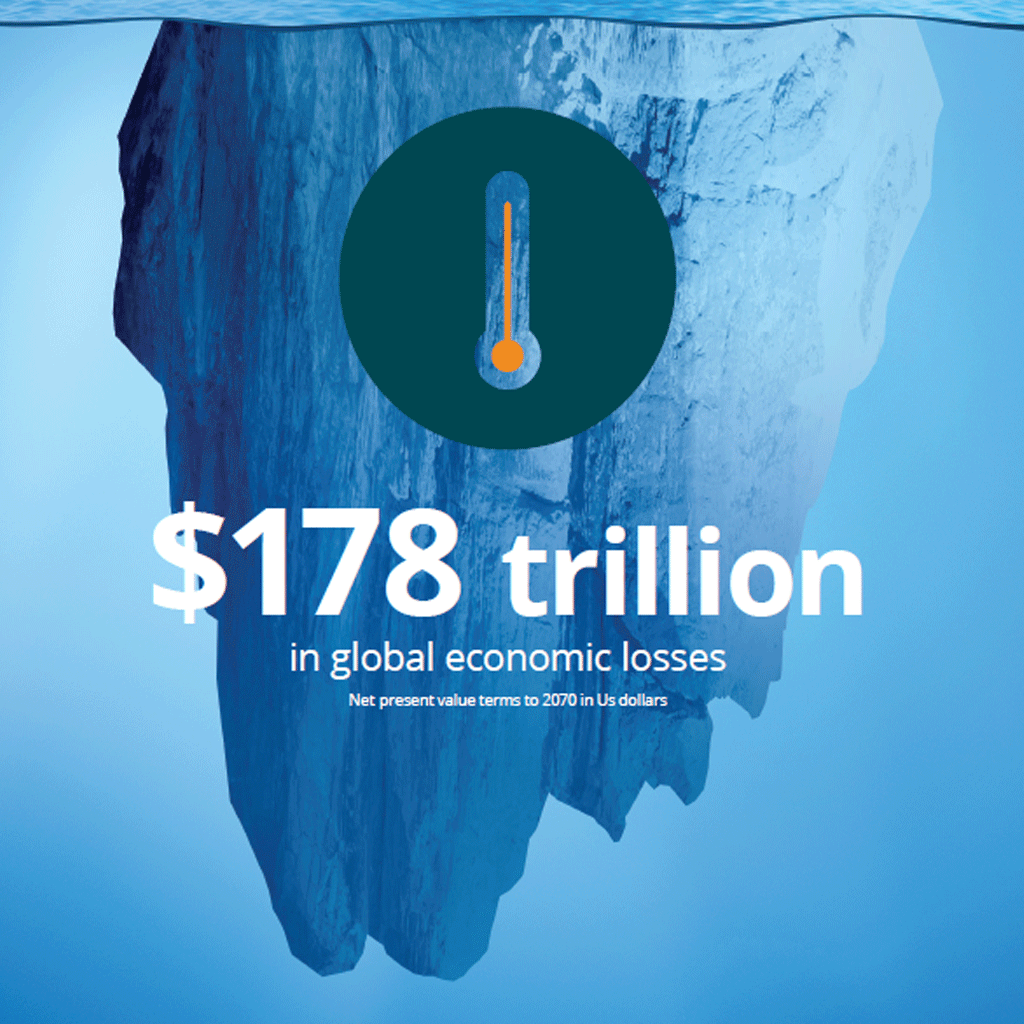
By Jeremy Williams
The title above is a quote from the Global Turning Point report from Deloitte, which looks into the economic cost of inaction on climate change.
If you’ve been paying attention to such things for a while, you’ll remember the Stern review, which was an important moment in climate policy in the UK. It made it very clear that the cost of inaction was greater than the cost of action, and that there was a sound economic case for responding to climate change. The 700-page report was released in 2006 and was influential in shaping the Labour government’s view of climate change. The Climate Change Act followed two years later.
Climate justice campaigners such as myself may find it frustrating that it’s the economic case that finally swung the government into action, but that reflects the priorities of those in power. And the economic case remains important, as environmental arguments are easily stereotyped as negative and depressing. (At the extreme end of things, a Conservative MP recently complained that the government’s net-zero plans would lead to people being colder, poorer and eating insects.)
What Deloitte have done this time around is model the future of the economy under a business-as-usual scenario, which leads to three degrees of warming. Then they’ve compared it to a scenario in which the economy is fully decarbonised by the middle of the century, and that sees half as much warming. “The status quo is the costlier choice”, the report, and spectacularly so: “unchecked climate change could cost the global economy US$178 trillion in net present value terms from 2021–2070. The human costs would be far greater: a lack of food and water, a loss of jobs, worsening health and well-being, and reduced standard of living.”
By contrast, responding appropriately to the climate emergency sets the scene for future prosperity, creating US$43 trillion in value between 2021 and 2070.
It’s hard to imagine $178 trillion in economic losses from climate change. In case it helps, here it is in big letters on a picture of an iceberg, which is what Deloitte do with it:

There’s no question that there are huge up-front costs to climate action, with enormous investments required to transform industrial society. Along with the mounting damage from climate change itself, that does reduce economic activity in the short term. As time goes on, however, the avoided costs mount up and reach the ‘turning point’ that Deloitte describes, where we start to reap the benefits of past good decisions.
This, says Deloitte, isn’t usually modelled by economists and governments, which don’t incorporate the harm from climate change into their forecasts. “Because the climate has changed, our economics, too, need to change.”
I’d say they could change their economics a lot more than they do, given the report’s framing of progress entirely through the lens of economic growth, but it’s a start. And if you know anyone who thinks net-zero is leading us towards shivering in the dark, maybe send them to Deloitte.
First published in The Earthbound Report.
Categories: climate change, decarbonisation., economy, opinion, policy
8 replies »